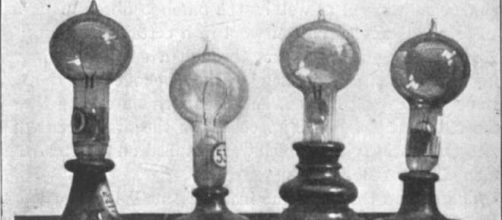Jake Dyson, son of Sir James, came up with a solution that even Edison could not have foreseen. He invented an LED that can last for around 40 years, half a lifetime. Here is why this is so important. Ever since the lightbulbs were invented, there have been some rumors that even good Thomas Alba Jr. found a material that could make light bulbs last for life. However, rumor has it he changed his mind last minute and used tungsten, a metal that will eventually break when heated up and cooled down repeatedly for a long time. Why would he do that? The answer is simple: if he sold a light bulb that lasts forever, at some point every family that could afford it would have one or several light bulbs and because they last forever they would never need a new one so his business would go rapidly to bankruptcy once this happened.
By selling light bulbs that only last for a few months, he may have not designed light bulbs that last forever, he designed a business that lasts forever.
Jake Dyson found a void in the market. Even when people might think he will eventually run out of business, the truth is he is filling in a void that will always be there. He created an LED light that lasts a lifetime (well, half a lifetime) because many constructions such as airports, military and government buildings, huge skyscrapers and many more do not want to replace their lightbulbs often. Other potential clients are lamp designers. This LEDs will enable them to create much more complicated designs because they actually have to think of a way for the user to be able to reach in the lamp to replace light bulbs.
This should not be a problem anymore if clients do not have to replace a single lightbulb in 40 years.
Dyson commented that a single LED that lasts for 40 years designed by him can generate four times the light generated by the competition. Also it consumes only a quarter of what the competition would need to produce the same amount of light and of course it lasts almost six times longer than the competition (other LEDs last around 7 years, but begin to lose brightness quite sooner). So even when Dyson´s LEDs are sold at £1,400 a piece, considering you would need four of the competition´s devices which last only one sixth, "Ariel" as Dyson has named his creation certainly comes as cheap.

